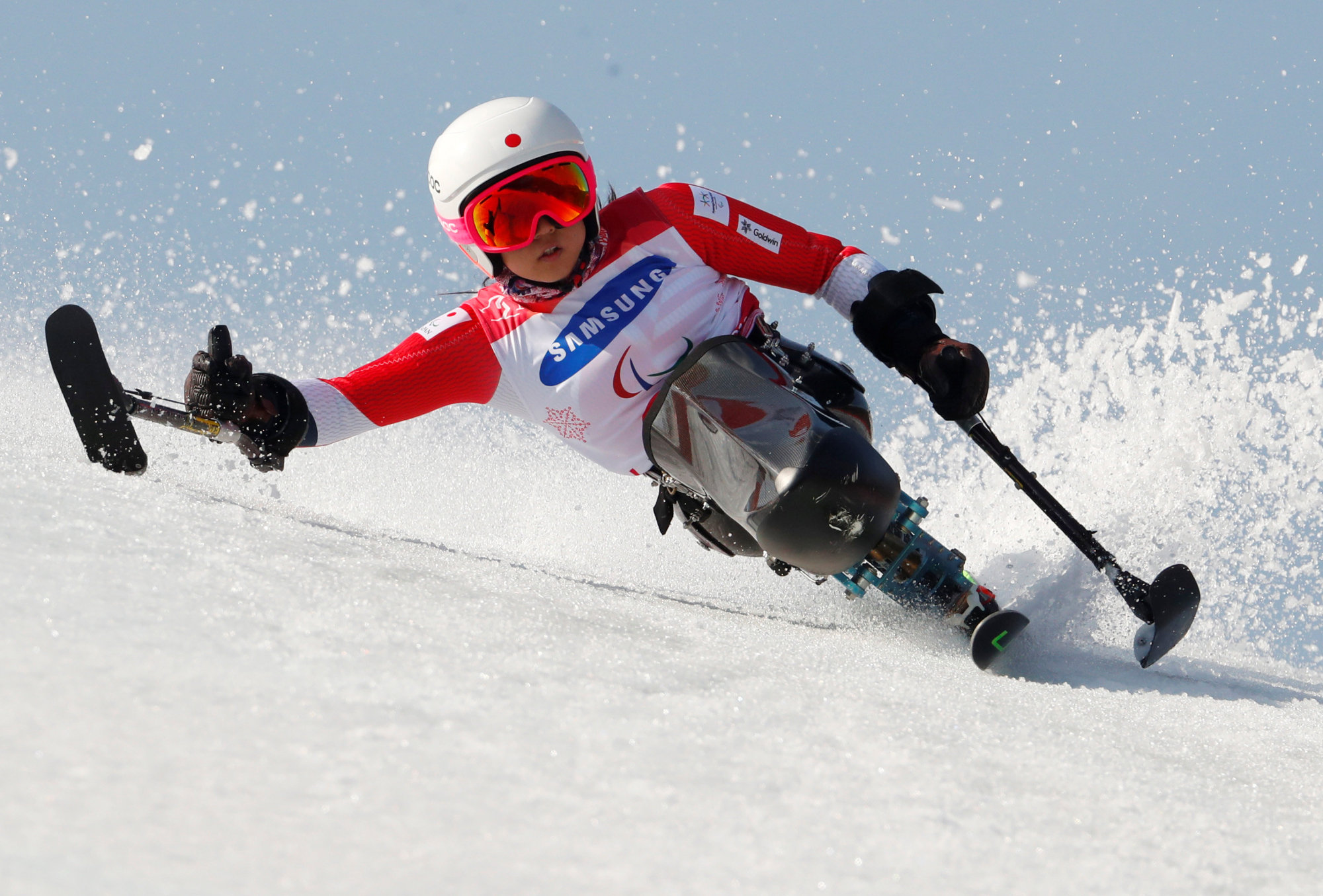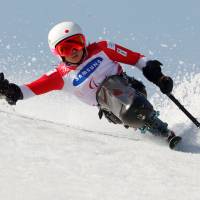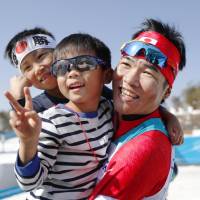Sit skier Momoka Muraoka raced to Japan's first gold medal of the Pyeongchang Winter Paralympics on Wednesday in the women's Alpine skiing giant slalom.
Muraoka finished in a disability-factored, two-run total of 2 minutes, 26.53 seconds at Jeongseon Alpine Centre, beating out the Netherlands' Linda van Impelen by 2.71 seconds. Austria's Claudia Loesch took the bronze.
"Right now, I'm relieved. The moment I found out that I won, I was filled with all sorts of emotions like joy and a sense of accomplishment," Muraoka said. "I really wanted to win gold."
The 21-year-old Muraoka added to her silver medal in the downhill and bronze medals in the super-G and super combined. Her fourth medal brought Japan's count here to seven.
In her first run, Muraoka led the 10-woman field, crossing 1.40 seconds ahead of Van Impelen. She cruised to victory with the second-best second run of 1:13.06, with Van Impelen's seventh-place finish giving her plenty of room.
"After the first run, I thought the skiers in second and third place have their shot at coming from behind," Muraoka said. "So I just wanted to finish with a smile by delivering my usual skiing, rather than playing it safe and dropping to second or third."
The giant slalom is a technical event in which the winner is determined by the combined time of two runs made on different courses on the same day.
Muraoka will close her Pyeongchang campaign on Sunday, when she competes in the slalom event.
Elsewhere at the Pyeongchang Paralympics on Wednesday, Yoshihiro Nitta took the silver medal in the standing category of the men's cross-country 1.5-km sprint classical.
The 37-year-old crossed the finish line at Alpensia Biathlon Centre just 0.8 of a second behind Alexandr Kolyadin of Kazakhstan, who took the gold with a disability-factored time of 4 minutes, 19.7 seconds. Canadian Mark Arendz and Ilkka Tuomisto of Finland tied for bronze.
Nitta led for most of the race until he was caught by Arendz and Tuomisto in the final stretch to make it a three-way fight. But Kolyadin came out of nowhere with a powerful last push that saw him overtake his competitors for his first Paralympic medal.
"The first thing I felt when I finished was disappointment. I had a shot at gold, and I really should have won it," Nitta said.
A six-time Paralympian, Nitta adds to the gold medals he won in the 10-km classical and sprint classical at the 2010 Vancouver Games and the bronze medal he won in the 5-km classical at the 2002 Salt Lake City Games.
Having lost his left forearm at age three after it got caught in a combine harvester operated by his grandfather, Nitta is classified as an LW8 athlete.
His wife Chisako and two young sons were in the crowd cheering him on with hand-decorated fans as he competed in his first event of the Pyeongchang Games.
He is also making appearances in the 10-km classical on Saturday, and the 4x2.5-km mixed relay on Sunday.
"I'm definitely going to take the gold in the middle distance (10 km). That is what I've been preparing for and I have a better shot there," he said.
Also in Wednesday's men's standing 1.5-km sprint, 17-year-old Taiki Kawayoke, the youngest member of Team Japan, was knocked out in the semifinals, while in the women's standing competition Yurika Abe just barely missed out on qualifying for the semifinals.





